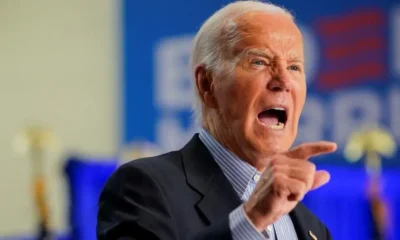The province will release its 2021-22 budget Wednesday afternoon, and it’s likely few surprises or innovations will be found.
Manitoba has already made several announcements about what to expect in this year’s fiscal budget.
Tuesday, Finance Minister Scott Fielding and Health Minister Heather Stefanson said the province will spend $1.2 billion solely on mitigating COVID-19.
Fielding has previously said the fiscal plan will focus on protecting people during the COVID-19 pandemic and charting a recovery as the pandemic subsides.
Read more:
Manitoba budget will include $50M to tackle pandemic-related surgery backlog: premier
On March 31, Premier Brian Pallister said $50 million will be earmarked to reduce the wait times for surgeries, now more backlogged than ever due to the pandemic.
And last week, Pallister promised rebate cheques for Manitobans.
There was no immediate word on exactly how much the rebate cheques will be worth, but Pallister said they come as the province moves to cut the PST on personal services such as haircuts and salon services and begins to phase out the education property tax.


However, local groups are hopeful there will be some spending on things that aren’t related to COVID-19.
Kate Kehler of the Social Planning Council said the province needs to work on issues such as affordable housing, raising the minimum wage to a living wage, basic income, child care affordability and revamping the EIA.
“Manitoba continues to have the highest rates of child poverty of all the provinces,” said Kehler.
“The pandemic brought the precarity of living paycheque to paycheque home to too many.”
A Probe poll released Tuesday on behalf of the Social Planning Council showed that 76 per cent of Manitobans want the province to provide additional help to those living in poverty.
Other results showed 60 per cent support for more job training and education opportunities, 45 per cent support for more help for kids in foster care, and 38 per cent said they considered a basic income one of the “the best ways to fight poverty.”
“Manitoba must commit to substantial investments with target of at least 300 new units of social housing, while boosting the maintenance of existing Manitoba Housing to at least $100 million per year,” said Kirsten Bernas of the Right to Housing Provincial Working Group.
Read the report here:
(function() { var scribd = document.createElement(“script”); scribd.type = “text/javascript”; scribd.async = true; scribd.src = “https://www.scribd.com/javascripts/embed_code/inject.js”; var s = document.getElementsByTagName(“script”)[0]; s.parentNode.insertBefore(scribd, s); })()
Kevin Rebeck of the Manitoba Federation of Labour said thousands of Manitobans are working full-time but still live in poverty.
“To make sure that working families can afford the rent and pay the grocery bills, we need a minimum wage that is a living wage now,” he said.
Listening to @WinnipegMayor on Manitoba's provincial budget. Wishes: Confirmed money for North End Sewage Treatment Plant, support for transit/no delays from the province to help city access federal transit cash, and to keep the funding levels for the city the same.
— elishadacey (@elishadacey) April 6, 2021
Meanwhile, one group just wants the government to stay in its lane.
“The hard-working members of IBEW 2034 keep the lights on and the power going at Manitoba Hydro, and we have always been there to provide reliable, affordable service to Manitobans,” Mike Espenell, the business manager of IBEW 2034, which represents Manitoba Hydro workers, said Tuesday.
“We know that Manitobans have many priorities they are hoping to see recognized in this budget. We’re simply asking for this government to get out of the way of a fair contract. We don’t think that’s too much to ask.”
Manitoba Hydro workers have been on strike since March 23.
—with files from Shane Gibson and The Canadian Press
Must See
-




Entertainment
/ 3 weeks agoFaveSzn’s Revelation: Dating Choirmaster at 10 and Sexual Curiosity
Nigerian singer, Chidozie Ugochinyere, popularly known as FaveSzn, has revealed that she once dated...
By Flying Eze -






Europe
/ 3 weeks agoWhy Hungarian Prime Minister Orban visited
Two months later, the leaders of China and Hungary met again. Hungarian Prime Minister...
By Flying Eze -






News
/ 3 weeks agoThree dead and millions without power as Tropical Storm Beryl hits Texas
Man, 53, and woman, 74, killed by fallen trees and third person drowns amid...
By Flying Eze



